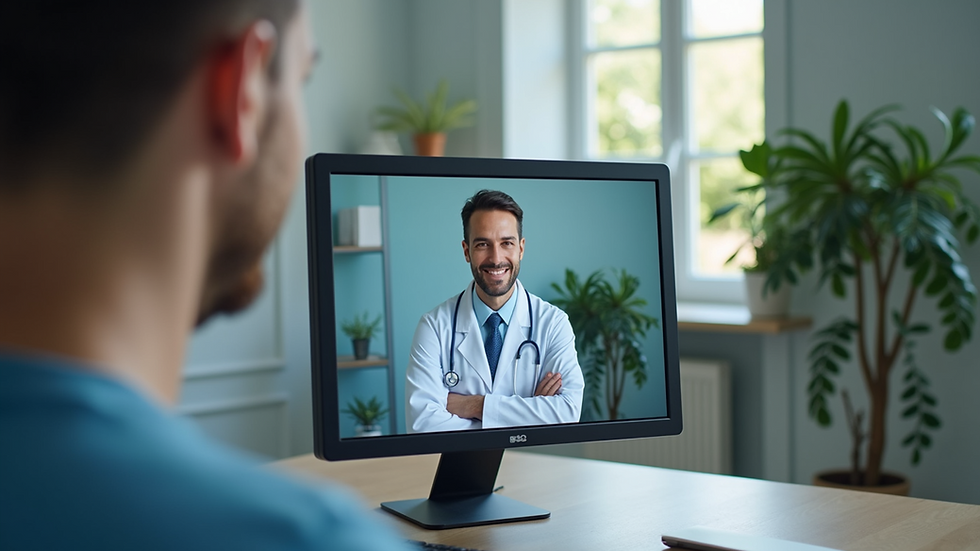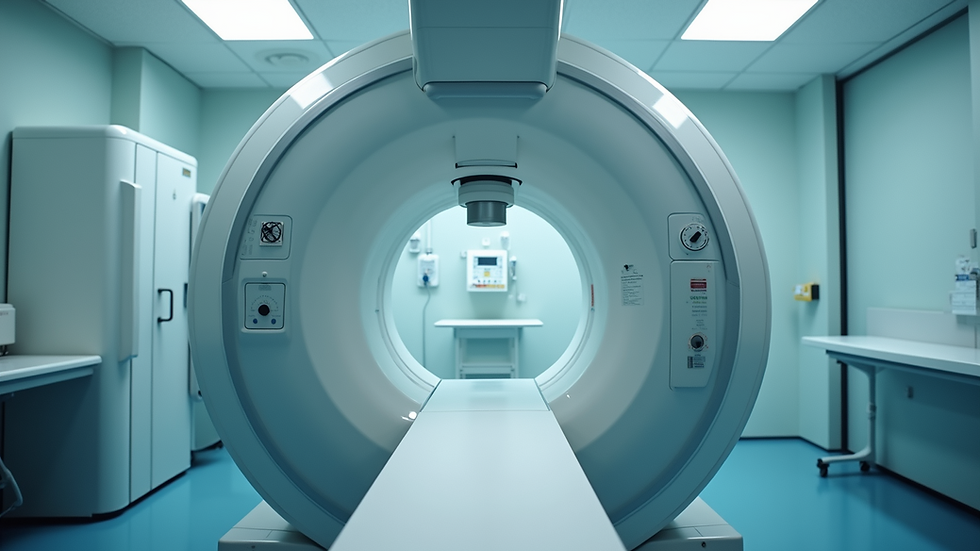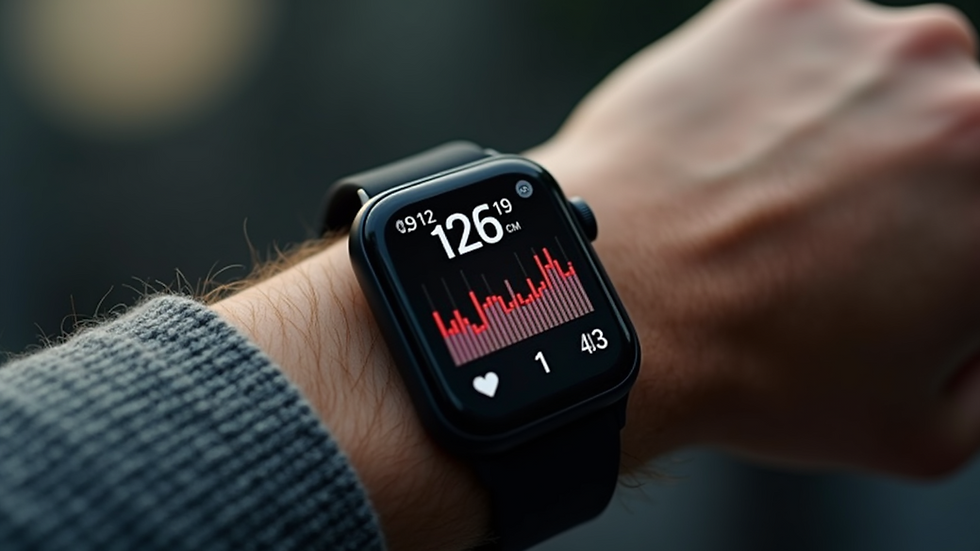How AI is Transforming the Future of Healthcare and Medicine
- Ling Zhang
- May 14, 2025
- 5 min read
The intersection of technology and healthcare is revolutionizing the way we approach medicine. Rapid advancements in digital tools, artificial intelligence, and data analytics are paving new paths for treatment, diagnosis, and patient care. From telemedicine to personalized medicine, technology is not only enhancing the efficiency of healthcare systems but also improving patient outcomes. This blog post explores key innovations in healthcare technology and their implications for the future of medicine.
The AI Impact of Healthcare Technology
In recent years, healthcare technology has dramatically altered the landscape of medical services and patient experiences. One of the significant shifts has been the rise of telehealth services. According to a report by McKinsey, telehealth adoption has surged, with up to 46% of patients now utilizing virtual visits for routine care. This dramatic increase demonstrates the power of technology to bridge gaps in access and deliver quality care where it is needed most.

Telemedicine allows providers to extend their reach and connect with patients who might otherwise face barriers to receiving care due to geographical distance, mobility issues, or lack of local specialists. Healthcare technology has then made it possible for patients to feel safe and secure while receiving medical advice from the comfort of their homes.
What sets telehealth apart from traditional in-person visits is its flexibility. Patients can schedule appointments around their lifestyle, which has been especially beneficial for busy families and individuals with tight schedules.
Innovations in Diagnostics
Advancements in technology have significantly improved diagnostic capabilities. AI-driven tools are increasingly being adopted in various medical fields to analyze complex health data and make informed predictions. For example, radiology has seen a remarkable improvement with AI algorithms that assist in interpreting medical images such as X-rays, MRIs, and CT scans.

Studies have shown that AI tools can detect diseases like lung cancer and diabetic retinopathy with greater accuracy than human radiologists. This capability not only increases the chances of early diagnosis but also streamlines the workflow in radiology departments, freeing up valuable time for healthcare professionals to focus on patient care.
Moreover, the data-driven nature of modern diagnostics allows for personalized treatment plans, tailoring interventions based on individual patient needs and conditions. This shift towards precision medicine marks a significant enhancement in the quality of care patients receive.
What is the Future of AI in Healthcare?
Looking ahead, the potential for artificial intelligence in healthcare is vast. The technology is expected to play a pivotal role in predictive analytics and personalized medicine. By analyzing large volumes of data, AI can identify trends and patterns that may not be apparent to human practitioners, thus improving decision-making processes in clinical settings.
For instance, companies are now developing AI applications that monitor patient health in real-time, allowing for timely interventions before complications arise. Furthermore, machine learning algorithms are being trained to recognize early signs of chronic conditions, significantly affecting patient outcomes.
As the technology matures, the integration of AI in healthcare will become more seamless, with electronic health records evolving into intelligent systems that provide actionable insights. The future of medicine will see a convergence of AI-powered tools with traditional healthcare practices, leading to a more efficient, outcome-oriented approach.
Remote Monitoring and Wearable Technology
Wearable devices have emerged as essential tools in health monitoring. These gadgets can track everything from heart rate and physical activity to sleep patterns and even blood sugar levels. The increasing prevalence of smartwatches and fitness trackers has empowered patients to take charge of their health.

Remote monitoring technology allows healthcare providers to keep tabs on patient health from afar. For instance, chronic disease patients can utilize these devices to manage their conditions more effectively, reducing the need for frequent hospital visits. A 2021 study indicated that remote monitoring can improve adherence to treatment plans, leading to better health outcomes and patient satisfaction.
Additionally, with the onset of Internet of Things (IoT) devices, healthcare has entered an era of interconnected monitoring systems. These devices can communicate in real-time, providing healthcare professionals with immediate access to patient data.
Data Analytics and Patient Care
Data analytics has become cornerstone technology in modern healthcare systems. The ability to analyze vast amounts of health data allows for enhanced patient outcomes through better insights into treatment effectiveness. Hospitals and clinics are increasingly leveraging analytics to identify trends in patient populations, leading to more targeted health initiatives.
For example, analytics tools help identify at-risk populations for diseases, enabling healthcare providers to implement proactive measures. By harnessing insights from various healthcare interactions, organizations can improve care delivery and resource allocation, ultimately leading to a more efficient system.
Moreover, predictive analytics can improve staffing decisions in healthcare facilities, ensuring the right number of staff members are on-hand to meet patient needs. The future of medicine undoubtedly leans on data to drive healthcare strategies.
The Change in Patient-Provider Relationships
The rise of healthcare technology also significantly alters how patients interact with healthcare professionals. Today’s patients are more informed and engaged than ever before, largely due to the wealth of information available online. Technology facilitates transparent communication, allowing for shared decision-making in treatment plans.
Patients can now access their medical records online, share information with their providers, and receive guidance on managing their health autonomously. This level of engagement leads to improved trust in the healthcare relationship, as patients feel more in control of their health journeys.
Additionally, with the introduction of patient portals and mobile health applications, patients can ask questions, schedule appointments, and manage their prescriptions without needing to rely heavily on phone calls or in-person visits.
Embracing the Future of Healthcare
As we look to the future, embracing technological advancements in healthcare is essential. Stakeholders, including healthcare providers, policymakers, and patients, must work collaboratively to ensure these innovations improve health outcomes.
Investing in continuous training for medical personnel about new technologies, prioritizing data security, and fostering a culture of innovation are crucial steps toward optimizing healthcare delivery. As technology evolves, it promises to unlock new possibilities within medicine, transforming how we think about health and care.
By embracing these advancements, we can look forward to a future where healthcare is more efficient, equitable, and patient-centered, empowering individuals to lead healthier lives.
Overall, staying informed and adaptable in this fast-paced technological environment will be crucial for all involved in the field of medicine. The anticipation of technology's impact on healthcare is an exciting journey worth taking.
Stay tuned for the next blog, and subscribe to the blog and our newsletter to receive the latest insights directly in your inbox. Together, let’s make 2025 a year of innovation and success for your organization.
>> Discover the path to achieve sustainable growth with AI and navigate the challenges with confidence through our Data Science & AI Leadership Accelerator program. Tailored to help you craft a compelling data and AI vision and optimize your strategy, it's your key to success in the journey of Generative AI. Reach out for a complimentary orientation on the program and embark on a transformative path to excellence.

May you grow to your fullest in your data science & AI!
Subscribe to our data science & AI Leadership insight blog to stay updated on the latest trends and insights! Don't miss out on valuable information that can help propel your business forward.
Subscribe Grow to Your Fullest and get your Free Download
*** Please DOWLOAD the FREE document, Find your signature vision questionnaires so you use it to help you find your life vision and mission.





Comments